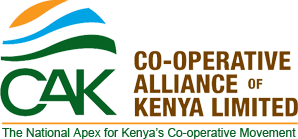AIRTEA Third-Party Close-Out (Capitalization) Meeting at Musanze, Rwanda: Reflecting on Agricultural Innovation and Rural Transformation
28 March, 2025
AIRTEA Third-Party Close-Out (Capitalization) Meeting at Musanze, Rwanda: Reflecting on Agricultural Innovation and Rural Transformation
The AIRTEA Third-Party Close-Out (Capitalization) Meeting, held in Musanze, Rwanda from March 24th to 28th, 2025, marked a significant milestone in agricultural innovation and rural transformation efforts across East Africa. This crucial event was coordinated by the Forum for Agricultural Research in Africa (FARA), the Association for Strengthening Agricultural Research in Eastern and Central Africa (ASARECA), and the Eastern Africa Farmers Federation (EAFF). The AIRTEA Project, funded by the Organisation of African, Caribbean, and Pacific States (OACPS) through the European Union-backed ACP-Innovation Fund, has been instrumental in fostering youth and women empowerment, enhancing technology transfer, and improving agricultural profitability in Kenya, Rwanda, and Uganda.
Overview of the AIRTEA Project
The AIRTEA Project has been a game-changer in advancing agricultural productivity and sustainability in East Africa. Through a competitive grants scheme, third-party projects have been funded to enhance various agricultural value chains, including aquaculture, crops, livestock, and information and communication technology (ICT). The primary objective of these initiatives has been to create a more inclusive and profitable agricultural ecosystem, particularly for marginalized groups such as youth and women.
Among the key third-party implementers of this project is the Co-operative Alliance of Kenya (CAK), which has played a pivotal role in leveraging multi-stakeholder partnership (MSP) benefits to improve the profitability of rural women and youth in the dairy sector. Their targeted intervention focuses on Kirinyaga, Embu, Nyeri, and Nyandarua counties in Kenya, where dairy farming serves as a key economic activity.
Purpose of the Capitalization Meeting
The capitalization meeting in Musanze provided a platform for key stakeholders to reflect on the progress made through the AIRTEA third-party projects, share best practices, and evaluate the overall impact of the initiative on the agricultural sector in East Africa. The event convened representatives from funding agencies, implementing partners, farmers’ organizations, policymakers, and other relevant stakeholders to engage in knowledge-sharing and strategy development.
This forum was essential in ensuring that the lessons learned from the project are effectively documented and disseminated to inform future agricultural initiatives. Additionally, discussions focused on scaling up successful innovations and strengthening partnerships to sustain the progress achieved through the AIRTEA initiative.
Key Highlights of the Event
1. Success Stories and Impact on Agricultural Value Chains
Participants had the opportunity to showcase the successes achieved in their respective projects. Among the notable achievements were:
- Enhanced Dairy Productivity in Kenya: The CAK-led initiative demonstrated a significant improvement in dairy farming profitability among rural women and youth. Through capacity building, access to quality feeds, and modern dairy farming techniques, farmers reported increased milk production and better market linkages.
- Advancements in Aquaculture and Crop Farming: Several projects in Uganda and Rwanda showcased enhanced fish farming techniques and improved crop yields, thanks to technology transfer and farmer education programs.
- Digital Transformation in Agriculture: ICT-driven solutions were highlighted as key enablers of market access, financial inclusion, and data-driven decision-making for smallholder farmers.
2. Lessons Learned and Best Practices
The meeting provided an opportunity to analyze both successes and challenges encountered throughout the project implementation. Key lessons shared included:
- The Power of Multi-Stakeholder Partnerships: The role of collaborative efforts between government agencies, private sector players, and farmer organizations was identified as crucial in driving sustainable agricultural development.
- Importance of Youth and Women Inclusion: Engaging youth and women in agribusiness has proven to be a sustainable approach to addressing unemployment and enhancing household incomes.
- Adoption of Innovative Technologies: Mechanization, digital platforms, and climate-smart agriculture were identified as transformative elements in enhancing productivity and resilience against climate change.
3. Strategies for Sustainability and Scale-Up
Ensuring the sustainability of the AIRTEA project’s impact was a core focus of the discussions. Some of the key strategies proposed included:
- Strengthening Policy Support: Policymakers were encouraged to create an enabling environment for agricultural innovation through supportive policies and regulatory frameworks.
- Continued Capacity Building: The need for ongoing training and mentorship for farmers, particularly women and youth, was emphasized.
- Expanding Access to Finance: Innovative financing models such as microfinance, cooperative credit schemes, and public-private partnerships were highlighted as essential for sustaining agricultural enterprises.
Conclusion and Way Forward
The AIRTEA Third-Party Close-Out (Capitalization) Meeting in Musanze was a landmark event that underscored the achievements and transformative impact of the initiative. The collaborative approach adopted by FARA, ASARECA, EAFF, and implementing partners such as CAK has paved the way for a more resilient and profitable agricultural sector in East Africa.
As stakeholders move forward, the emphasis will be on ensuring that the knowledge and innovations generated through this project are sustained and scaled to benefit a broader spectrum of farmers across the region. Strengthening partnerships, policy advocacy, and investment in agricultural research and technology will be fundamental in achieving long-term agricultural transformation in Africa.
This event not only celebrated the milestones achieved but also reaffirmed the commitment of stakeholders towards fostering inclusive agricultural development that empowers communities, drives economic growth, and enhances food security in the region.
